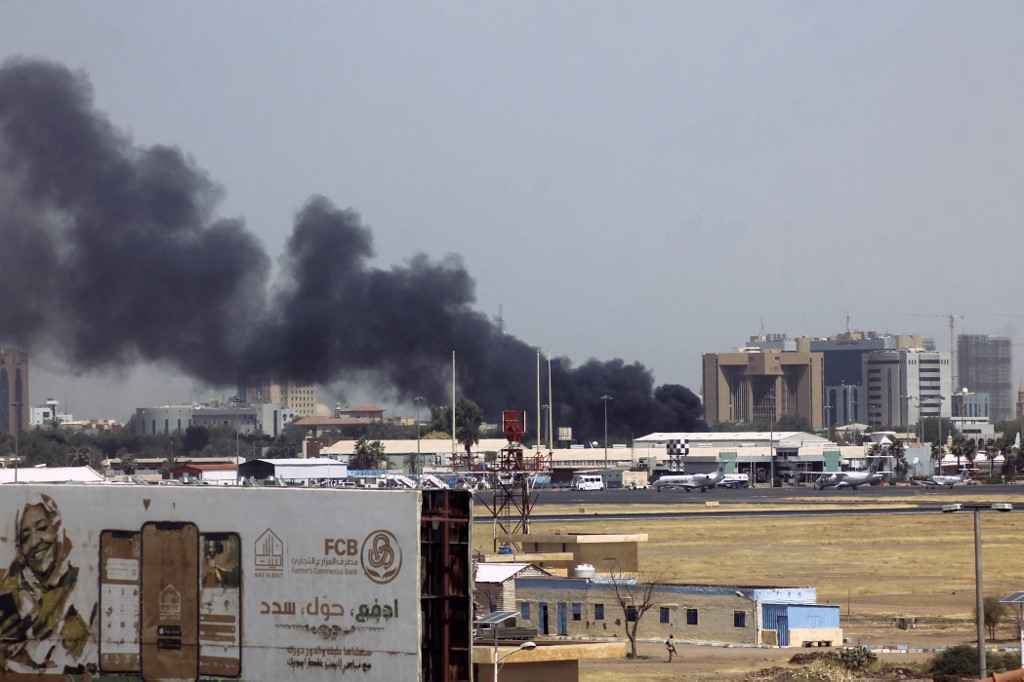As of Monday, at least 97 civilians have been killed and 365 are injured.
The Arab League has renewed calls for an immediate cessation of fighting in Sudan as clashes between Sudanese army and Rapid Support Forces (RSF) in Khartoum intensified for a third day.
Permanent representatives of the 22-member bloc joined global calls for peace in Sudan during an emergency meeting at its headquarters in Cairo.
Qatar was represented by its Deputy Permanent Representative at the Arab League Fahd Rashid Al Muraikhi.
According to Qatar’s news agency (QNA), the meeting took place at the invitation of Egypt and Saudi Arabia, both of whom demanded “the need for an immediate cessation of all armed clashes.”
The bloc also stressed the importance of “a rapid return to the peaceful path to resolving the Sudanese crisis.”
The organisation warned of “dangerous repercussions” for the escalations in Sudan, urging Sudanese parties “to uphold the interest of Sudan.”
On Saturday, fighting broke out in Khartoum between the Sudanese army and the paramilitary, led by former militia leader General Mohamed Hamdan Dagalo, widely known as Hemedti.
As of Monday, at least 97 civilians have been killed and 365 injured, the Sudanese doctors’ syndicate said.
The RSF suspended all flights from Khartoum International Airport and reports said the paramilitary had captured Meroe’s airport.
According to the World Health Organization, nine hospitals in Sudan “have run out of blood, transfusion equipment, intravenous fluids and other vital supplies”.
An official source at Al-Shaab Hospital told Al-Jazeera on Monday that more than 50 hospital staff and dozens of patients are trapped because of the fighting.
The latest round of violence could significantly hinder the political process in Sudan as well as efforts to establish civilian rule.
Critics say the RSF’s move is a direct coup attempt that reflects similar scenes from 2021.
At the time, the junta placed Prime Minister Abdallah Hamdok and various other officials on house arrest before releasing them.
In August 2019, four months into the Sudanese uprising, military leaders signed a power-sharing agreement with the FFC, which formed a Sovereign Council.
The declaration set late 2023 as the deadline for elections to elect a civilian administration.
The uprising toppled Sudan’s longtime President Omar Al-Bashir.
Sudan has been grappling with a fragile path to democratic rule since the military’s overthrow of Bashir, with the joint civilian and military government struggling to control a dire economic and political situation in the country.
In December last year, Sudanese political parties and the military signed a deal that aimed to pave the way for a two-year civilian transition period.
On Saturday, Qatar expressed “its deep concern” over the situation in Sudan and called for restraint.
In a statement, the Gulf state’s foreign ministry called on all parties to “resort to the voice of reason, give priority to the public interest and spare civilians the consequences of the fighting.”
“The Ministry of Foreign Affairs expresses Qatar’s aspiration for all parties to pursue dialogue and peaceful ways to overcome differences,” the statement added.







